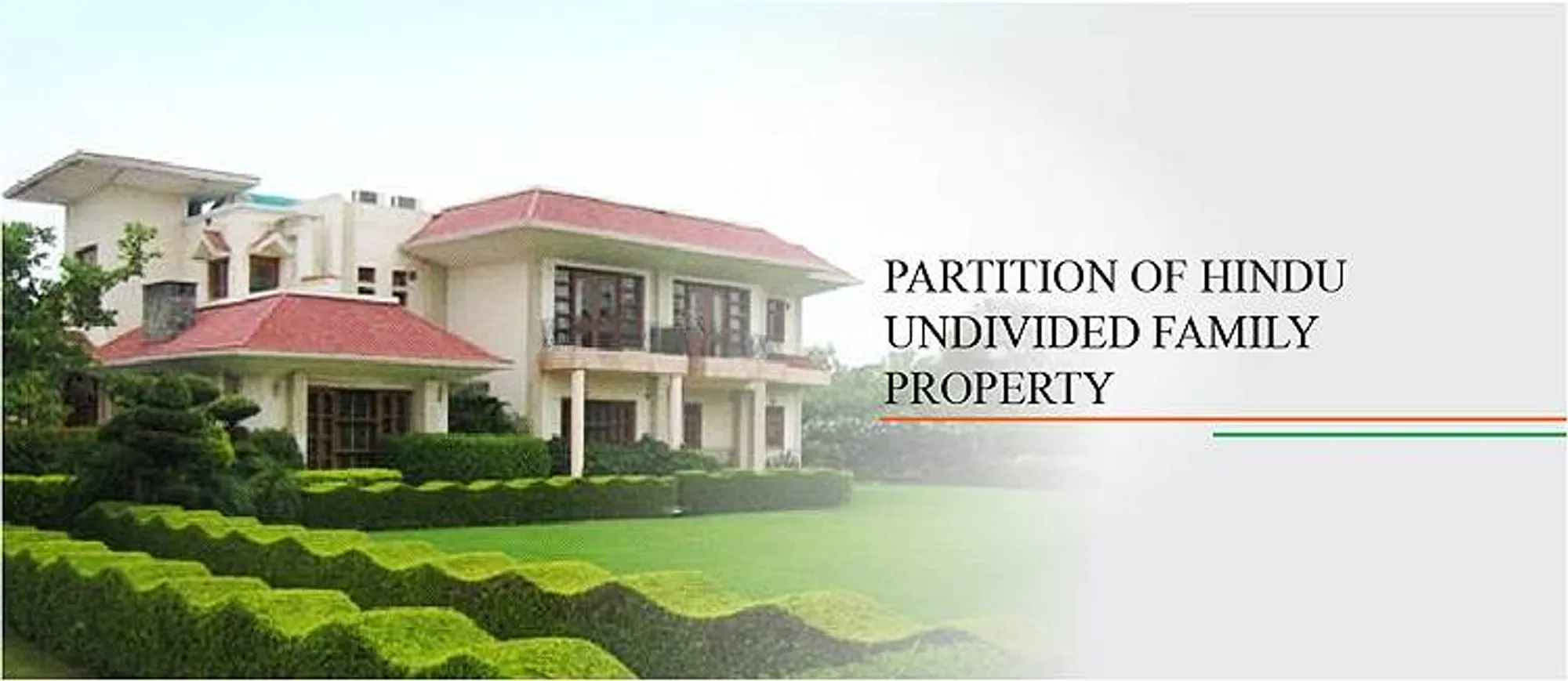The Hindu Law defines a Hindu Undivided Family (HUF) as a family which consists of male lineage decedents from a common ancestor and also includes their wives and unmarried daughters. HUF is also a separate legal entity under the Income and Wealth Tax Act and is liable to pay tax. It is common knowledge that the affair of the HUF is managed by the Karta. Hindu Law is comprised of two schools of law, Dayabhaga and Mitakshra school. Dayabhaga is applied in West Bengal and Assam and Mitakshra are applied in rest of India.
Partition means ending the status of Joint Hindu Family. Under Hindu Law when the Joint Family status comes to an end there is division of property among members and joint ownership of property comes to an end. Partition of the HUF property can be of two types under the Hindu Law i.e. total and partial. In total partition, all the member of the HUF ceases to be members of the HUF and the whole property ceases to be the HUF property. In partial partnership, the willing members of the HUF opt out of the partnership and the rest of the people continue to be members of HUF. Partial partition can be property specific too where the property is divided between members and the rest of the property continues to HUF property.
To start partition proceedings all that is necessary is a clear indication by a member of the HUF to separate himself from the family. Such declaration should be known to the members of the HUF who would be affected by the decision. Partition of the property will only take place when all the members of the HUF agree to the terms of the partition.
Partition of HUF can be done through family settlement or through partition deed. Stamp duty is not required for family settlement and thus is not required to be registered, whereas partition deed attracts stamp duty and must be registered. Due to huge expenses that come along with partition, family settlement is preferred. Things to keep in mind while perusing with the option of family settlement is that the partition should be voluntary and should be without any force, threat, coercion or fraud. It should be fair and equitable settlement and though it is unstamped and unregistered it is binding on every member.

